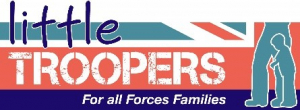
Louise Fetigan, Founder of charity Little Troopers, discusses how governors can ask the right questions to ensure schools meet the unique needs of military children.

There are estimated to be at least 100,000 children in the UK who have a parent serving in the British Armed Forces. Not all military children attend a school near where their parent works and in fact, a growing number of families live ‘unaccompanied’, which means the serving parent works away in the week and the child lives with their other parent away from the military base.
Whether schools have one or two hundred military children, it’s important to recognise some of the unique challenges that military children experience such as moving home frequently and regularly being separated from a serving parent due to deployment or other military commitments.
Schools near military bases typically have dedicated pastoral support and specific strategies in place for service pupils, but in schools where there are very few (if any) military children there is often no support at all. These children can be left feeling isolated because their peers don’t relate to their experiences and military life is never discussed.
Research from the MoD shows that half of military parents still worry about the impact of service life on their children and Little Troopers’ own research shows that 96% of forces parents would like to see schools offer more specific support for military children. So, what can governors do to improve how schools support military children?
All schools with service children receive £310 of Service Pupil Premium per service child, per school year. Rather than lumping this budget together with Pupil Premium to fund school trips or breakfast clubs (which we do see happen a lot), this funding should be used to provide specific Pastoral support for service children such as staff training, wellbeing support, early intervention work or specific military-themed sessions to give these students a voice and an opportunity to share their experiences. Governors have an important role in the strategic oversight of this funding and ensuring its’ targeted use.
Schools with fewer numbers of service pupils might need to be more creative with how the budget is spent, but targeted support needn’t be expensive. For instance, at Little Troopers we have just launched a free online Resource Hub and Military Child Wellbeing course for secondary schools to complement our pre-existing primary school resources.
Whatever strategy the governing boards’ challenge helps the school put in place, it’s important to remember that the needs of military children will be changing all the time, so schools should be regularly talking to their military families, listening to their experiences and adapting how they respond. By adopting a more proactive approach, schools will not just be preventing military children from reaching crisis point, they will be empowering these children with positive tools that will help them face challenge and change both now and in the future.
To find out more about Little Troopers’ school resources visit www.littletroopers.net/littletroopersatschool
